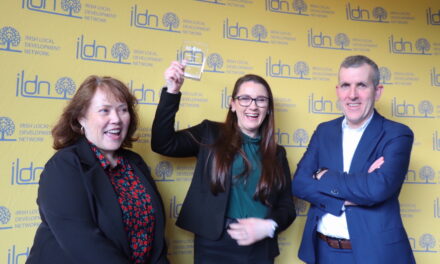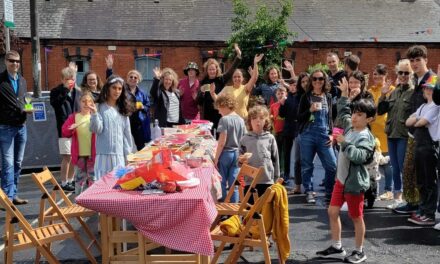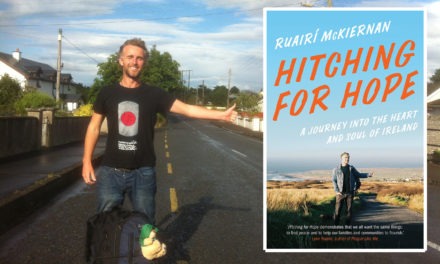Did you know there are specialist newsletters chock-full of great information and ideas of interest to communities? We choose three stand-out publications we think you should know about.
Community development is very much a collaborative effort, and inspiration and support can come from any number of sources. Here, we’ve gathered three of the best magazines and newsletters – other than Changing Ireland, of course – to get those ideas flowing.
Rural Water News
Among Irish volunteers, there are people who have skills and knowledge that would no doubt match those of a qualified engineer. Local people involved in running group water schemes, for instance, are some of the most able (yet modest) volunteers in the country.
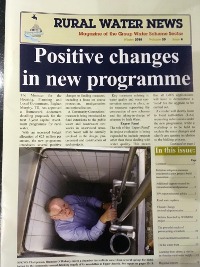 Many of them are avid readers of Rural Water News, a magazine – it’s more than a newsletter – published four times a year by the National Federation of Group Water Schemes.
Many of them are avid readers of Rural Water News, a magazine – it’s more than a newsletter – published four times a year by the National Federation of Group Water Schemes.
What’s special here?
As well as looking at best practice in Ireland, Rural Water News features ‘Learning from Others’. As an example, the Winter 2018 edition covered a visit by Irish people to see a group water scheme in a rural area west of the city of Lintz in Austria.
The magazine is both technical and community-focused and features plenty of photographs. The focus moves easily from groups of young people learning about water quality to stories and photos showing how best to drill a borehole.
There are also regional updates, national news and the latest from the EU that impacts on water schemes.
The Federation’s website handily features an archive of its magazines going back to 2003.
Local Authority Times
The ‘LA Times’ was quoted during a Dáil debate earlier this year by former minister, Jan O’Sullivan. She held the magazine high and referred to a feature inside on how other countries have successfully gone about directly electing city mayors.
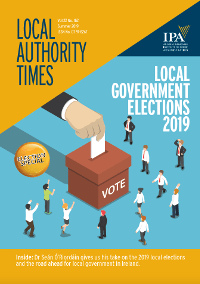
What’s special here?
Established in 2009, the biannual Local Authority Times (or LA Times) is published by the Institute of Public Administration (IPA) based in Dublin.
Its primary audience is the local authority sector, but much of its content would interest people in the community and voluntary sector.
It is seen as a reliable source of information on such a range of topics that there should be something to interest readers in every edition. This summer, a new-look, more colourful Local Authority Timeshopes to grab readers’ attention, while still producing in-depth, original research and analysis. The publication is free to read.
Editor Laura Shannon is interested in readers’ views and welcomes comments, suggestions and ideas for topics that they should address.
The IPA’s website also has unique resources on file in regard to public administration, social inclusion and development.
ESF Newsletter
The European Social Fund (ESF) has invested around €7 billion in Ireland since the country joined the EU (then called the EEC) in 1973.
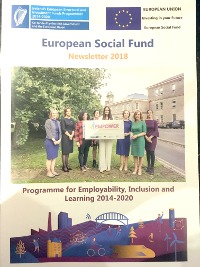
It is the EU’s main instrument for investing in people and, to highlight its impact, the ESF in Ireland publishes an annual newsletter.
What’s special here?
The ESF Newsletter is a surprisingly accessible publication, with minimal EU jargon and programme talk. It could be read by anybody.
The newsletter features stories to inspire – accompanied by quality photographs – from local projects backed by Youthreach, the Garda Youth Diversion Programme, the National Adult Literacy Agency, the Social Inclusion and Community Activation Programme (SICAP), and more.
It includes updates on EU programmes, such as the Ability Programme and Springboard+.
The 2018 edition ran to 42 pages. All 10 editions published since 2008 are available online.
Submit a story
Anyone is welcome to submit a piece for publication, particularly those who are involved in projects that are ESF-funded.
To propose an article for the 2019 newsletter, email peil@education.gov.ie.
Previously highlighted
Sara Sue Rodriguez de Jolivet was one of more than 3,200 people from 101 nationalities who received Employment for People from Immigrant Communities (EPIC) support over the past decade. Of that number, 67% got jobs, joined a training course or became a volunteer.
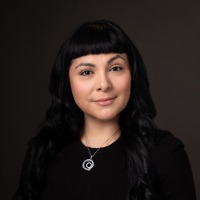
Sara Sue said the EPIC programme support helped her get her first job here and was “a life-changing experience” for her. Today, 10 years on, she works in IT and uses some of her spare time to deliver talks to people who are in the same shoes she once wore.
Her story appears in the 2018 ESF Newsletter. It goes to show that the EU has learned that statistics alone don’t tell a story.
EPIC is one of the many ESF programmes benefitting people in Ireland. In this instance, it helped to integrate and change the life of an immigrant from Peru who came here with her partner.
The programme supports migrants to become economically independent and more socially integrated in Ireland. Participants get pre-employment training, one-to-one support and work experience opportunities.
Sara Sue has also written of her experiences as an immigrant in Ireland on her LinkedIn page.


